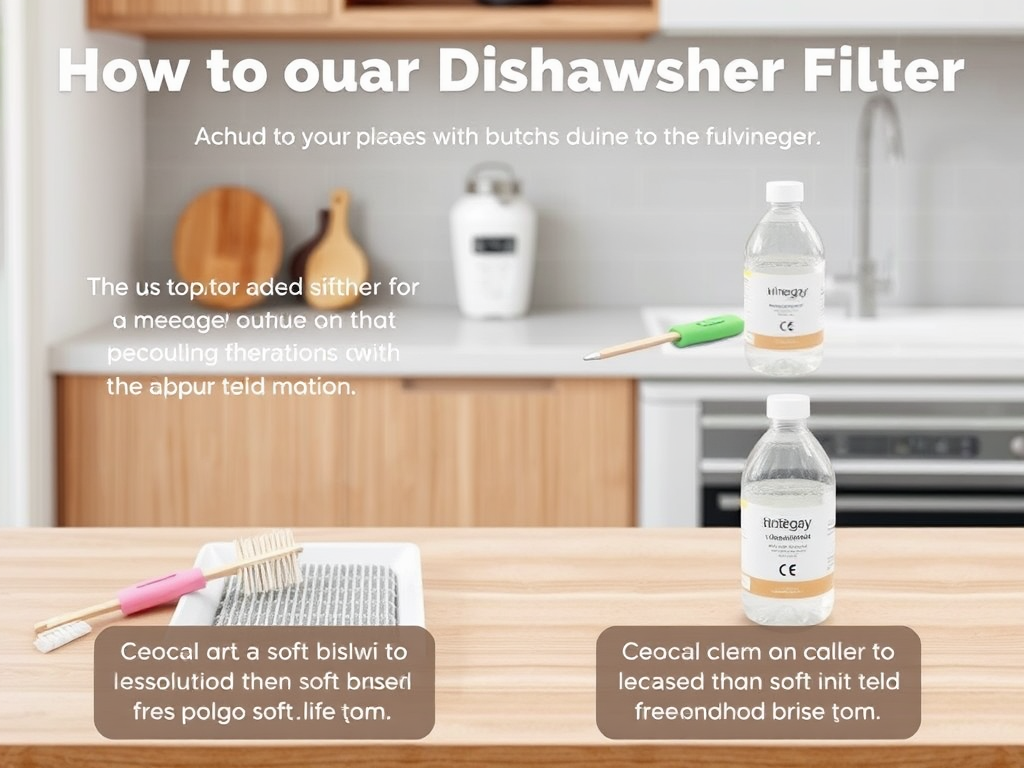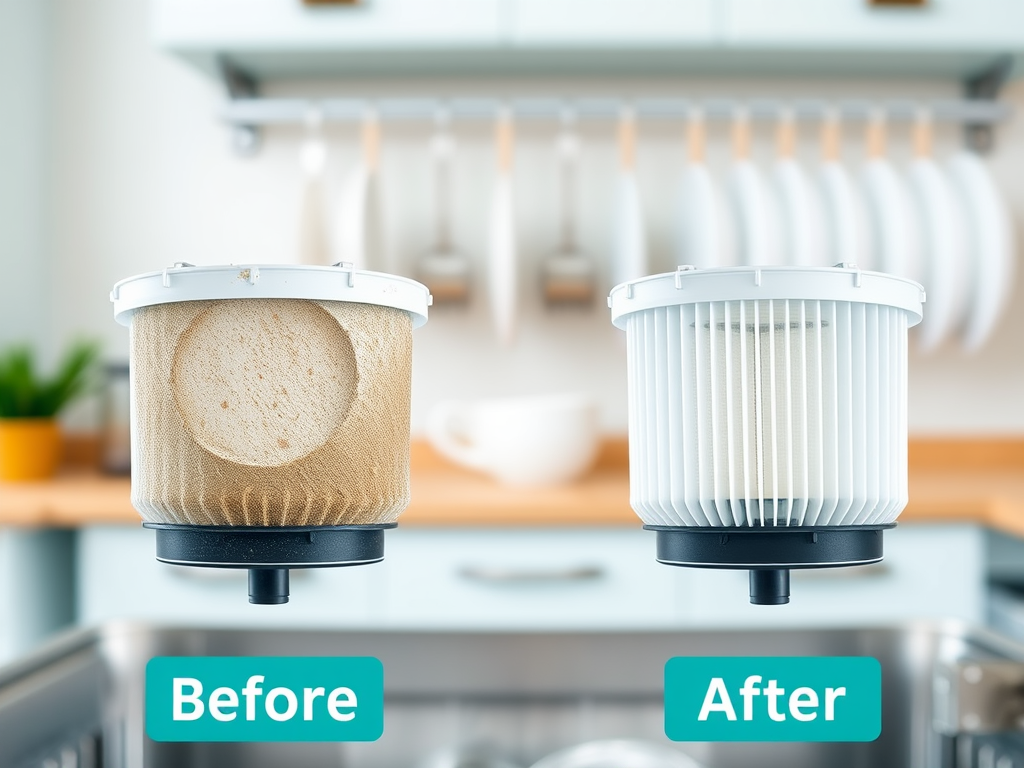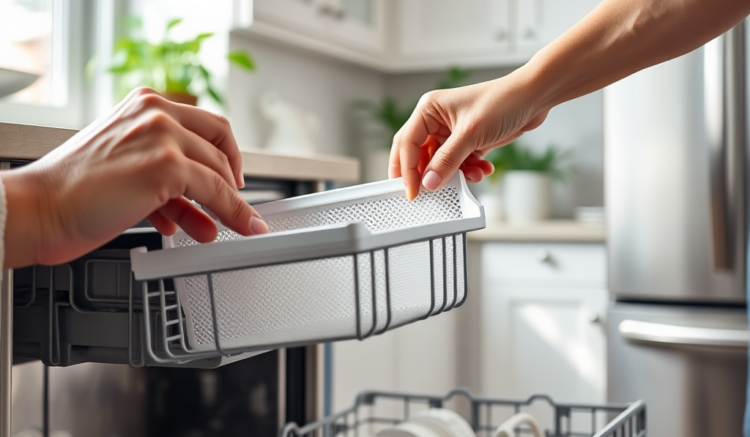Cleaning your dishwasher filter is an often-overlooked aspect of maintaining one of the most essential appliances in your kitchen. You’re likely familiar with the frustration that comes from discovering dirty dishes despite a recent wash. By understanding how to care for your dishwasher filter properly, you can enhance both the performance and longevity of your machine. It’s important to recognize that neglecting this simple task can lead to significant complications down the road. By the end of this article, you’ll understand common mistakes to avoid, as well as effective methods for keeping your dishwasher filter in tip-top shape. Let’s dive into the critical knowledge you need to keep your appliance running smoothly.
Understanding Your Dishwasher Filter

To maintain efficiency in dish cleaning, a clear understanding of the dishwasher filter’s functionality is pivotal. The dishwasher filter acts as a sieve, capturing food particles and debris that can hinder performance. While many newer models feature self-cleaning filters, older dishwashers often require manual cleaning to prevent clogs and complications. This article will explore both types, so you know what to look for in your dishwasher filter.
What is a Dishwasher Filter?
The dishwasher filter’s primary role is to prevent food debris from clogging the drain and impacting wash quality. Without it, particles can circulate back onto your clean dishes, resulting in a frustrating experience. Regular cleaning of this filter is crucial to ensure optimal operation, as it directly influences the efficiency of the appliance. However, simply knowing that you need to clean the filter is not enough; you must be aware of how to do it correctly. This is where many people fall short, overlooking vital steps and consequently diminishing their dishwasher’s effectiveness.
Types of Dishwasher Filters
Two main types of dishwasher filters exist in most units: self-cleaning filters and manual filters. Self-cleaning filters utilize the dishwasher’s own water and spray action to keep clean, while manual filters need to be periodically removed, cleaned, and replaced. Understanding the type of filter in your dishwasher is essential for proper maintenance. Below is a quick overview:
| Filter Type | Maintenance |
|---|---|
| Self-Cleaning | Automatically cleans itself during wash cycles; periodic inspections recommended. |
| Manual | Requires manual removal and cleaning every month or as needed. |
Common Mistakes to Avoid

When it comes to cleaning your dishwasher filter, it’s easy to make a mistake that could lead to further issues. Here is a list of some common pitfalls you should avoid during the cleaning process:
- Neglecting to Turn Off the Dishwasher: Always ensure the dishwasher is powered down before cleaning.
- Using Harsh Chemicals: Steer clear of abrasive cleaners that can damage the filter material.
- Failing to Rinse Thoroughly: Make sure to completely rinse out cleaning agents to prevent residue buildup.
Many people overlook the little things, believing that they can clean the filter on the fly. This leads to several common errors that can impact overall appliance functionality. In addition to the mistakes listed above, it’s essential to recognize the importance of regular maintenance. Consistent cleaning routines help avoid major buildup and ensure smooth operation.
Recommended Cleaning Agents
Instead of relying on harsh chemicals, consider using more natural options for cleaning. Here’s a quick list of effective, gentle cleaning agents for your dishwasher filter:
- Baking soda
- Vinegar
- Warm water with mild detergent
These alternatives not only reduce the likelihood of damaging the filter but also provide an eco-friendly approach to appliance care. It’s advisable to apply these agents, allow them to sit for a bit, and then rinse thoroughly.
Ignoring Regular Maintenance
Many homeowners clean their dishwasher filter only when they notice problems, often overlooking their routine upkeep. By incorporating dishwasher filter cleanings into your regular schedule, you can avoid accumulation and keep your dishwasher working at peak efficiency. Ideally, aim to check and clean the filter at least once a month, or more often if you frequently run heavy loads. Below is a suggested maintenance routine:
- Inspect the filter for debris on a weekly basis.
- Thoroughly clean the filter monthly.
- Check the owner’s manual for specific guidance tailored to your dishwasher model.
Conclusion
Understanding and avoiding common mistakes when cleaning your dishwasher filter will significantly enhance the appliance’s longevity and efficacy. Regular maintenance, coupled with proper cleaning techniques, will keep your appliance running efficiently and providing the clean dishes you expect. By integrating these practices into your dishwasher routine, you’ll not only save time and frustration but also ensure that your investment continues to operate at its best for years to come.
Frequently Asked Questions
- How often should I clean my dishwasher filter? It’s recommended to clean your dishwasher filter at least once a month or according to the manufacturer’s guidelines.
- What tools do I need to clean the filter? Generally, a soft brush or cloth, warm water, and mild detergent are all you need for effective cleaning.
- Can a clogged filter affect my dishes? Yes, a clogged filter can lead to poor cleaning performance, leaving food particles on your dishes.
- Is it safe to use bleach on my dishwasher filter? No, bleach can damage the filter material. Use a mild detergent or vinegar instead.
- Can I run my dishwasher without a filter? No, using your dishwasher without a filter can lead to debris clogging the drain and damaging the appliance.
